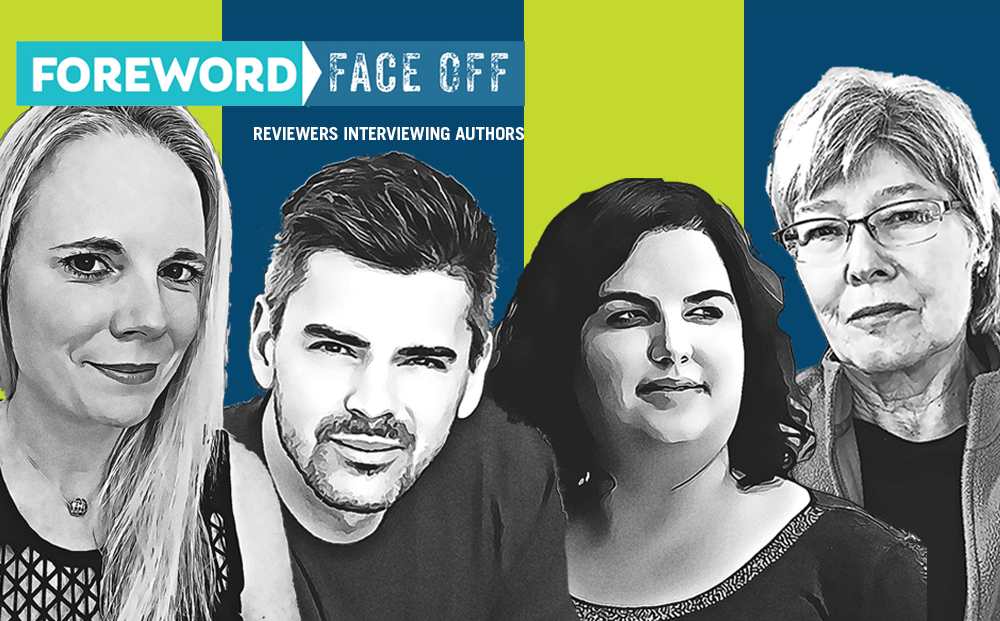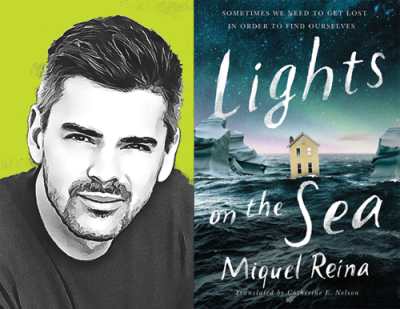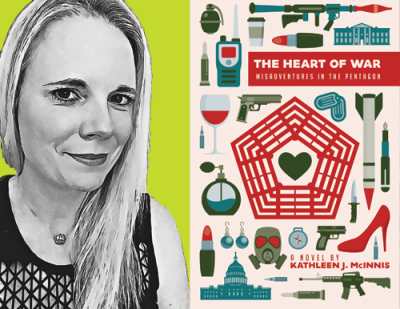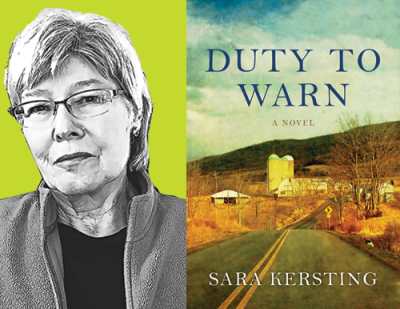Four Phenomenal New Debut Novels

Back again with more first-time authors from the Debut Fiction special section we featured in the November/December issue of Foreword Reviews. Today, we’re hearing from four novelists.
Knowing that first books can be arduous, we asked the newly launched virtuosos to talk about the process of completing their debuts. Unsure of what to expect, we were blown away by the answers. Indeed, they make for some fascinating reading, so we thought we’d share some of their stories. Below, you’ll see that we also included a snippet of the Foreword reviews, as well as a link to the full reviews as they appeared in the special section.
Adult fiction fans, you’re in for a treat. There’s no doubt in our mind, these newly-crowned novelists will have long, successful writing careers.

Miquel Reina
Lights on the Sea, Amazon Crossing
Excerpt of Review by Michelle Anne Schingler:
“A novel in which a house may be a ship, and in which it’s never too late to start living, Lights on the Sea is a delightful trip, and functions as an extended allegory of loss, aging, and forgiveness.”
Miquel tells of idea genesis, early success, and then, extraordinary success.
I began writing the first draft of Lights on the Sea during my last year of college—10 years ago! Can you imagine?!
At that time, I was still living in my parent’s house. I remember one day, I was working on a script for an assignment when my attention was grabbed by the yellow dollhouse that since I was a kid, my parents had on a shelf. Until that moment, I never noticed that the house was hanging on the edge of the shelf and at any moment, it might fall to the ground. And with that thought, the concept of the novel ignited in my head. Suddenly, I didn’t see a dollhouse on top of a piece of furniture, but a real house on the edge of a high cliff, which by an accident, fell into the sea and began a journey adrift.
For a year, I developed the first draft. Nobody except my mother knew that I was writing a novel, and she, patiently, read every night my advances. When I finished the draft I also finished college, and started working in an advertising agency, keeping the novel in a drawer for years.
Then, six years after, my life took a big turn: A creative studio in Vancouver offered me a dream job and I decide to move from Barcelona to Canada.
I suppose that when you are so far from home, without your friends or family, you have to find refuge in something familiar to you, and for me, that was the novel. Like an old friend that you haven’t seen for a long time, I reopened the files and I reread them. For months, I polished and rewrote some parts, letting other close friends to read it. All of them seem to like it, but as you know, family and friends sometimes don’t want to hurt your feelings by telling the truth. So to prove to myself that the novel was worth it, I decided to self-publish on the internet, where nobody knew me.
If I tell the truth, that was one of the scariest moments of all my life. Clicking the “publish” button and giving to the world a project you’ve been working so many years, it’s terrifying.
I don’t think I slept all night. And then, when I woke up, I saw something I couldn’t believe. In one day more than 6000 people downloaded Lights on the Sea and during the next weeks, people from around the world started to send me messages telling me how much they loved the story.
One month later, the book rocked to the first positions in the bestseller rankings, and then I got a call: A literary agent read my book and she wanted to represent me. I didn’t hesitate, and three months later, I signed contracts in major traditional publishing houses in Spain, Italy, and Germany, and September 25th, Lights on the Sea was published in English worldwide.
Although all of this might seem amazing, the truth is that it has been tough, exhausting, and sometimes very frustrating. But what I learned during these years is that, if you have a dream and you truly believe in it, all the effort and energy you put in it will be worth it and will reward you. I’ve needed 10 years to arrive here, and I feel that the journey as a writer has just started.
Now, the novel is navigating into new and exciting waters. Two months ago, a Hollywood agent from the CAA, contacted me. He read the novel and he loved it so much he wants to find a producer or director to transform it into a major movie. I remember when we talked for the first time, I explained to him an anecdote that very few people know. Mary Rose Grapes, the main female character of the novel, is based on Meryl Streep. I told him that. He started to laugh and two days later he sent me an email telling me that he has sent the manuscript to Meryl Streep´s agent in the CAA. I couldn’t believe it! I almost fell from the chair. So I want to think that at this moment, Meryl Streep is reading Lights on the Sea and she is making a call to become Mary Rose Grapes on the silver screen.
I know that this dream can seem impossible, but even if it takes 10 years, in the end, if you don’t give up, dreams can come true.

Kathleen J. McInnis
The Heart of War, Post Hill Press
Excerpt of Review by Laura Leavitt:
“The Heart of War by national policy veteran Kathleen McInnis is part office drama, part foible-filled romp through the US’s military bureaucracy. Details about the inside of Congress and the Pentagon ring true and give the text a behind-the-scenes feel without taking away from the rollicking plot. An amusing contemporary romance.”
Kathleen shares the story about how a Pentagon mix-up almost derailed her publishing aspirations.
When I joined the Pentagon, I ended up filling out and signing a lot of paperwork, much like our hero Dr. Heather Reilly does in The Heart of War. One such bit of paper requires employees to get Pentagon clearance for the publication of any works—fiction or nonfiction—that could accidentally contain classified information. It’s called the “security review,” and it’s supposed to take a maximum of sixty days. I dutifully submitted my novel and waited for a response.
And waited.
And waited.
Eventually, as the date I had to submit the manuscript to my publisher became uncomfortably close, I poked around to figure out what was going on. It turned out that the Pentagon lost my book. It got stuck in the shuffle between several offices and subsequently forgotten about. Luckily, I have some dear friends still working there who helped me get my manuscript dislodged from the bowels of the Pentagon’s bureaucracy and reviewed by the appropriate offices. As I reflect, it’s kind of hilarious to me that the process of getting the The Heart of War published—and rescuing it from bureaucratic purgatory—could have been a scene from the novel itself.

Lena Mahmoud
Amreekiya, University Press of Kentucky
Excerpt of Review by Mya Alexice:
“A tense examination of what a marriage is and how gendered expectations influence love and family. It is an intimate dissection of a relationship that exists in an unequal world. Isra is a brave, uncompromising heroine who fights back against what everyone tells her she should be. Her character is heartbreaking: a caged bird unable to break free.”
Lena explains how she wrote to right a wrong in the publishing world.
I first started writing AMREEKIYA over a decade ago because it seemed like so few people understood mixed race people. Of course, AMREEKIYA is not meant to be representative, as no one narrative could encapsulate all these experiences, but I wanted to steer away from the dominant discourse that depicts us as attractive symbols of progressive racial politics. While we are also not the tragic mulattos or half-breeds depicted in the past either, we have full lives that come with joys and challenges. One of the challenges many of us have in common is how much of the world tasks us with the impossible decision to choose one side of our identities, our families, to make it easier to define and understand us. Isra’s story is one response to this common conundrum.

Sara Kersting
Duty to Warn, Acre Books
Excerpt of Review by John M. Murray:
“Psychologist David Malden has been working with a patient, Robert Percy, during his off hours. When Percy suddenly returns to rural Michigan, Malden fears the worst. He becomes convinced that Percy, a troubled factory worker, is seeking revenge for his past in the foster care system. Duty to Warn is a finely tuned, suspenseful chase story.”
Sara explains what so many writers misunderstand about child abuse.
A major challenge in writing Duty to Warn was steering clear of stereotypes—especially in the case of Robert Percy. In most books and movies, victims of childhood abuse are portrayed as irrevocably damaged individuals, incapable of normal lives, loving relationships, etc. They are written as either raging avengers (whom we root for) or repressed cowards (whom we want to slap into shape). In my experience as a counselor, I often found (and marveled at) the opposite, so when Robert Percy emerged on paper, he was first and foremost a person, altered and damaged by his past, but not defined by it. And what Percy is after, in his search into his past, is much more complicated than revenge. He’s after what we all look for … the truth about ourselves—who we were then, and who we are now.
Matt Sutherland
